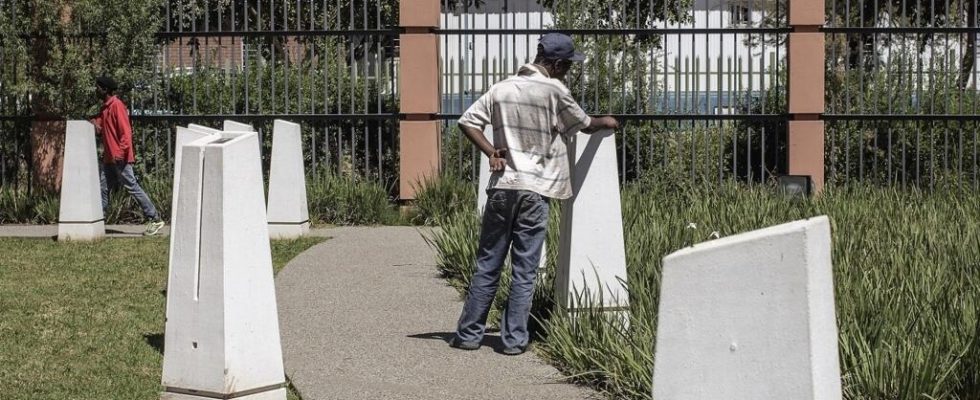In South Africa, pro-Palestinian groups continue to mobilize in support of the Gazan population. The plight of the Palestinian people still resonates particularly strongly in the rainbow nation, often compared to apartheid. This Sunday, March 17, activists went, with an association, to pay their respects to the graves of the victims of one of the most traumatic massacres in the history of the country: that of Sharpeville, in 1960.
2 mins
With our correspondent back from Sharpeville, Josephine Kloeckner
It was almost 64 years ago to the day. On March 21, 1960, thousands of residents of Sharpeville, a township 80 kilometers from Johannesburg, demonstrated peacefully against the policies of the pass, which required black people to carry certain identity documents to be able to travel, when the police opened fire. Men, women, children… more than 300 civilians were injured or killed.
Under a blazing sun this Sunday, the songs of 80 young people envelope the township cemetery. At their feet, 69 tombs trace a line whose end we cannot see. They are those of the victims of the massacre perpetrated by the apartheid police. “ I came to thank these people who are buried here, for the freedom we have today, a freedom for which they fought and which we owe to them. », Confides a participant.
Civilians killed while protesting against discrimination; for these South Africans, this memory resonates with the fate of the Palestinians todaysubjected to bombing by the Israeli army in response to the Hamas attack on October 7, 2023. Rethabile Ratsomo, in charge of the anti-racism program at the Ahmed-Kathrada foundation, which takes young people to Sharpeville every year, explains:
“ The Sharpeville Massacre was a very important moment in our history. It was after this that the international community began to realize the atrocities committed by the apartheid regime and impose sanctions. So we want to remind young people that they have the power to change the world. »
Many of these young people, “born free” as we call the generation born after apartheid, discover part of their history, and that of the Palestinians. Tumelo, 18, is very moved: “ I hope that what we have done here will raise awareness about the inhabitants of Gaza, and show that we have not forgotten the icons of our liberation, and that we are not forgetting them either. »
The date of the Sharpeville massacre is now a public holiday in South Africa, dedicated to human rights.
